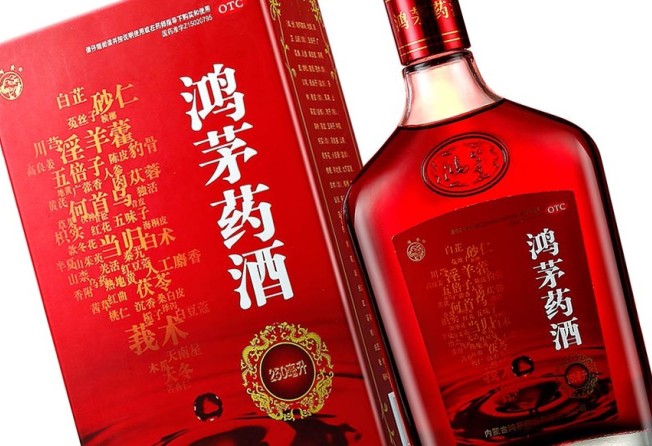Doctor arrested for describing Chinese medicinal tonic that was banned for false advertising as ‘poison’
Medic placed under investigation after company that has been repeatedly censured for misleading claims complained to police

A Chinese doctor is under investigation for describing as “poison” a “medicinal liquor” that has repeatedly been banned over false claims about its health benefits.
On Sunday police in Inner Mongolia confirmed they had detained Tan Qindong after receiving a complaint from the Hongmao Wine company, Beijing Youth Daily reported.
The police statement said the company had complained about a blog post that “maliciously discredited” the wine, which can be bought in some areas.
In February, the company’s advertisements were banned in the neighbouring province of Shaanxi as part of a crackdown by the Bureau of Press, Publication, Broadcasting and Television on food fraud and false advertising, the report added.
In 2016, the company was ordered by authorities in Korla, Xinjiang, to suspend sales of the product for exaggerating its benefits, according to an article on Sina.com.
Three years earlier it was included on a blacklist of companies found guilty of false advertising issued by the food and drug administration in Zhejiang province.
And in 2010, regulators in Hainan ruled that the company had misrepresented comments by experts and customers to exaggerate the benefits of its product.
Tan, 39, was detained in January, but police only confirmed his arrest on Sunday.
Police from Liangcheng county in Inner Mongolia began investigating the case on January 2, before detaining Tan eight days later.
Beijing Youth Daily said the detention was because his comments had “damaged the reputation of the business”.
Accountants hired by police to assess the company’s losses concluded that the defamation resulted in a direct loss of just under 1.3 million yuan (US$207,000) – a figure Tan’s lawyers contested, saying that more evidence was needed.
On March 12 Tan submitted a petition to the Liangcheng county police stating his post was published to advise elderly people against believing Hongmao’s advertising.
He accepted that his use of the word “poison” could be inappropriate, but insisted his post was factually correct.
His case had been passed to China’s state organ for legal supervision for review, the report said.
Tan’s article was published in December and said the liquor, which is popular with the elderly, contained 67 different Chinese herbal medicines, many of which were toxic.
The doctor also highlighted a list of illnesses the wine claimed it could cure, including coronary heart disease and hardening of the arteries, and questioned the evidence behind the claims.
China’s top court and prosecutor announced in 2013 that creators of online rumours viewed by more than 5,000 people or reposted more than 500 times would be charged with defamation.
Many people have questioned Tan’s arrest including his wife, Liu Wei, who told the newspaper his blog post had received just over 2,000 hits.
She was quoted as saying that she was surprised a post with that number of readers could result in detention.
Hongmao wine is listed under the State Food and Drug Administration as a Chinese medicine. The company, which traces its origins back to 1739, could not be reached for comment.